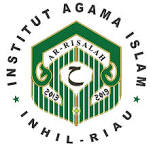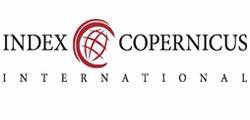Pedagogical Values in QS. Al-An’am Verse 32 and Implications on Life Goals: An Islamic Education Perspective
DOI:
https://doi.org/10.61104/ihsan.v3i1.603Abstract
QS Al-An'am verse 32 emphasizes that the life of the world is only a game and entertainment, while the afterlife is the real life. This research aims to discuss the pedagogical values in QS. Al-An'am verse 32 and its implications for the purpose of human life from an Islamic perspective. Through a literature study approach, this research explores the views of the mufasirs. The results of this study reveal that QS. Al-An'am verse 32 provides important insights for a Muslim's view of life in navigating life in the world and preparing for life in the hereafter. This verse emphasizes that the world is only temporary and full of impermanent pleasures. Therefore, humans are invited to make the life of the world a means to achieve true happiness in the hereafter. The pedagogical values contained in this verse have important implications in Islamic education, namely forming a generation of faith, piety, and noble character. These values include; (1) fostering faith and piety as the main foundation of a Muslim's life, (2) teaching that the world is used as a tool to achieve happiness in the hereafter, not the ultimate goal, (3) awareness that everything you have is a mandate of Allah that must be accounted for, (4) the importance of gratitude and staying away from excessive love of the world. Education based on Qur'ani values like this is expected to create a generation that is not only intellectually intelligent, but also morally and spiritually strong, ready to face life's challenges with full responsibility and wisdom.
References
Aginta, N. A., Zuhri, A., & Wanto, S. (2023). Solusi Alquran Menghadapi Kecemasan Pada Fase Quarter Life Crisis Perspektif Tafsir As Sa’di.
Alnashr, M. S., Zaenudin, Z., & Hakim, M. A. (2022). Internalisasi Nilai-Nilai Pendidikan Islam Melalui Pembiasaan Dan Budaya Madrasah. Islamic Review: Jurnal Riset Dan Kajian Keislaman, 11, 155–166.
Anggara, J. (2020). Karakteristik Al-Mukhtashar Fî Tafsîr Al-Qurân Al-Karîm.
Darsyah, S., Hitami, M., & Alwizar, A. (2023). Tujuan Hidup Sebagai Tujuan Pendidikan: Telaah Term-Term Dalam Al-Quran Tentang Tujuan Hidup Sebagai Tujuan Pendidikan. Al-Aulia: Jurnal Pendidikan Dan Ilmu-Ilmu Keislaman, 9(1), 1–13.
Faiz, A., & Faridah, F. (2022). Program Guru Penggerak Sebagai Sumber Belajar. Konstruktivisme: Jurnal Pendidikan Dan Pembelajaran, 14(1), 82–88.
Hidayatullah, A. S., & Saputra, B. D. (2022). Integrasi Ajaran Tamansiswa Dengan Ayat Ayat Pendidikan Dalam Al-Quran. Sosiohumaniora: Jurnal Ilmiah Ilmu Sosial Dan Humaniora, 8(1), 104–119.
Kuantitatif, P. P. (2016). Metode Penelitian Kunatitatif Kualitatif Dan R&D. Alfabeta, Bandung.
Langgulung, H. (1991). Asas-Asas Pendidikan Islam. Dewan Bahasa Dan Pustaka.
Mugiarto, M., Sauri, S., & Fatkhullah, F. K. (2021). Visi Pendidikan Berbasis Agama, Filosofi, Psikologi Dan Sosiologi. Ar-Rihlah: Jurnal Inovasi Pengembangan Pendidikan Islam, 6(2), 179–199.
Mulyadi, R., Sartika, D., & Setiawan, H. R. (2023). Pendidikan Agama Islam Sebagai Sarana Membentuk Identitas Keagamaan Dalam Masyarakat Multikultural. Khazanah: Journal Of Islamic Studies, 90–99.
Perwati, N. (2023). Pemikiran Kebahagiaan Epicurus Perspektif Filsafat Islam.
Rachmad, F., Hitami, M., & Yusuf, K. M. (2022). Tujuan Hidup Sebagai Tujuan Pendidikan. Jurnal Penelitian Ilmu Pendidikan Indonesia, 1(2), 503–515.
Rijali, A. (2018). Analisis Data Kualitatif. Alhadharah: Jurnal Ilmu Dakwah, 17(33), 81–95.
Rohman, T., Iskandar, I., & Barni, M. (2023). Guru Dan Murid Dalam Pendidikan Abad Ke-21: Menggali Nilai Dalam Perspektif Al-Qur’an Dan Hadis. Profetik: Jurnal Mahasiswa Pendidikan Agama Islam, 4(1), 53–64.
Saputra, D., & Abidin, J. (2021). Strategi Guru Pendidikan Agama Islam Dalam Menanamkan Nilai-Nilai Karakter Pada Siswa. Jmpa (Jurnal Manajemen Pendidikan Al-Multazam), 3(2), 67–80.
Sholihah, A. M., & Maulida, W. Z. (2020). Pendidikan Islam Sebagai Fondasi Pendidikan Karakter. Qalamuna: Jurnal Pendidikan, Sosial, Dan Agama, 12(1), 49–58.
Downloads
Published
How to Cite
Issue
Section
License
Copyright (c) 2024 Amanda Resti Maulidiya, Sofyan Sauri

This work is licensed under a Creative Commons Attribution-ShareAlike 4.0 International License.











 This work is licensed under a
This work is licensed under a 